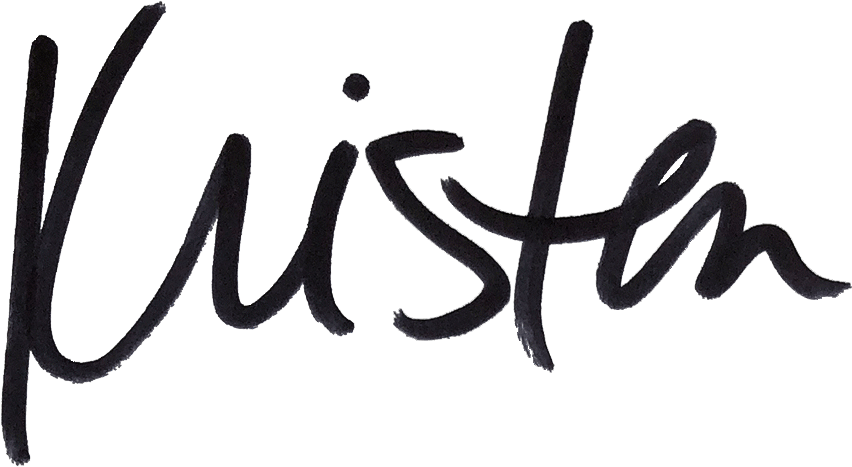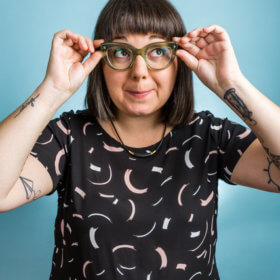Here’s an excerpt from today’s podcast, Heal the Horcruxes, part three of M-School. Here are parts one and two.
The most common horcrux in the world is MORE.
…and where you can see and then learn to put down all the ways you’ve fallen for ‘More,’ you can choose to pick up ‘enough.’
When we talk about having enough, we’re talking about realizing our place in the world. If you’ve ever been on a plane, you’re among roughly the wealthiest 1% of the world’s population in all of time.
Lemme repeat: if you’ve ever been on a plane, you’re among the wealthiest 1% of the world’s population.
So when we talk about more, and we talk about enough, we’re splitting hairs about your relative wealth. By virtue of your reading this, you can count yourselves as one of the wealthiest humans ever to have lived on the planet, even if you don’t have a collection of $7,000 handbags or seventeen cars or a squadron of hired help to dress you, bathe you, feed you, and transport you.
Of course, knowledge of this particular status doesn’t mean you feel wealthy: I certainly don’t, particularly when I’m strolling the streets of Paris and see bags in shop windows that cost more than my car. (And, let’s be honest, the total value of every car I’ve ever owned.)
Nor am I saying you should feel guilty about all you have: again, I don’t. I’m simply pointing out that in the whole great, vast and wide world that is your life, your ability to have traveled on a plane puts you in a class of people who are the cleanest, healthiest, and wealthiest the world has ever known.
You already have immense privilege, whether you acknowledge it or not. So, what will you do with it?
Most people will choose to pursue more money. Indefinitely.
More money, more money, more money, more money, more money.
It’s not particularly interesting, and it means your house will be filled with things and stuff, but it’s what the world offers. Shiny objects, writ larger and larger until the whole world is encrusted with crystals and diamonds.
From this perspective, there will never be enough money. Not ever, even for a minute, even if you’re a multi-billionaire.
You can choose to find your way to a place of enough.
From that place — in which your bills are paid, your heat is on, your food is relatively healthy and your safety is not at risk — you’re free to pursue more meaning, more time to yourself, more travel, and more creative projects.
More unplugged time.
More mornings in Paris.
More donations to charity.
More time with the people you love most.
More freedom, more spacious living, more adventuring that could go horribly wrong and leave you with malaria in a country where you speak none of the language.
More risk. More croissants. More Italian cookies.
More isn’t necessarily a bad thing. It’s just that pursuing more money and only more money precludes your pursuit of other things that are much, much more interesting.
Like more connection.
More time to read.
More minutes in bookstores, wandering around with no particular place to be.
More mornings to sleep in and get dressed when you feel like it.
There’s a wealth of time and energy available to you that isn’t visible when you’re exclusively pursuing more money.
One afternoon, you might find yourself in Paris, sipping coffee and watching the world go by, and you might let your gaze wander from one person to another with Notre Dame in the background, and you might lose your breath in the wonder of being so very lucky to have chosen to pursue all the mores that are inherently risky, and you might breathe deeply in the knowledge that you, lucky human, already have everything you need.
I tell you this not to lecture you or to point out that OH DEAR GOD YOU LUCKY BASTARD HOW DARE YOU MAKE MORE MONEY, but to share that on the other side of ‘enough,’ we don’t really have a blueprint for how things are done.
When it comes to modeling generosity in business, we have a whole lot of fluff: peeps who give way less than 1% of their net profits to charity and call themselves philanthropists. Peeps who give to charity as absolutely nothing more than a strategic move to get press. Peeps who align with nonprofits to make themselves look good/prestigious/caring, but who don’t give a damn about the organizations themselves.
When we want to figure out how to give money away through our businesses without using it as the crucial key to our respective strategic plans, we have very few role models.
I’m going to share the few examples that I have, and then invite you to share yours, and then maybe we can figure some shit out together about what it means to have enough and then do some good, interesting shit in the world with our enough-ness.
First: a dude named Rob Bell sells tickets to 2-day workshops. He sells them out every time, for every date he announces, and I notice over the years that the price goes from $500 to $400 to $300 without his saying a word. Clearly, demand isn’t a problem, so the price should stay steady, if not increase significantly. But he lowers the price, sells out each event, and keeps on doing his thing. On his birthday, he asks people to give to charity: water and raises over 100 grand.
Second: a dude named Bob Goff dedicates 100% of his book proceeds to the charity he founded. When it’s a NYT bestseller, he just does dances and gets excited and keeps on building schools all over the world with the hundreds of thousands of dollars he’s created.
Third: a group of influential people headed by Glennon Doyle get together and ask for peeps to donate $25 or less to help with the refugee crisis in Syria. Within 30 hours, $1.3 million is raised. They dance and high-five and keep doing their work in the world.
I want to live in a world where we see peeps selling out event after event and they choose to LOWER ticket prices as a result. I want to live in a world where big checks are siphoned off to nonprofits because the entrepreneur behind the business has enough, and where books fund movements and change and nonprofits as well as letting authors eat and sleep and live.
I want to live in a world where the whole world speaks the language of kindness and of giving instead of building endless, tedious and precarious staircases to MORE.
That’s why 25% of breathwork profits are donated to Together Rising and/or Flying Kites on a monthly basis.
That’s why Steer Your Ship funds the education of a teen in Bangladesh who wants to (escape child marriage and) be a doctor through Speak Up for the Poor.
That’s why my biz has donated over $25k to Flying Kites over the years. (You can hear my interview with founder Leila DeBruyne — episode #49 — here.)
Because more isn’t interesting, and enough allows for a world of possibilities that only open when we pay close attention to what inspires us and heals us and makes us believe hope is real and humanity is good.
Your turn to play with the possibilities:
I used to want to make ___________, but really I want to make ___________ and maybe even _________.
I don’t care about ______________anymore.
I spent ______________ years pursuing __________, and that’s done now.
When I feel like a failure, I beat myself up with ______________________’s success.
I’m tempted to abandon my work and take up _____________________ when my dementors come out.
Again, this was an excerpt! Listen to the whole podcast episode here:
Catch up on M-School, magic school for entrepreneurs! Episode 1 lives here and episode 2 lives here.
P.S. This episode digs into making more space and how you want to feel — and if you want to break up with your phone and feel less like your phone is tethered to you 24/7, Space can help. It’s a 21-day e-mail class that helps you slowly, patiently untangle your relationship with your phone. And cut your screen time in half, which frees you up to reach your enough-y goals like donating shittons of money to charity. 😉
??? Check out Space, then join the class.




